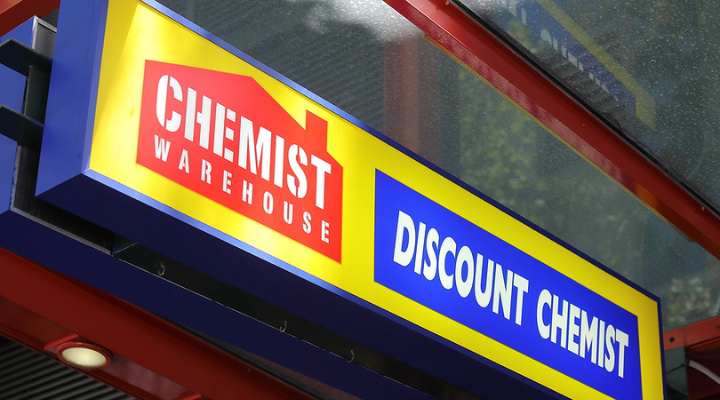The deadline for public submissions to the Australian Competition and Consumer Commission (ACCC) regarding the Sigma and Chemist Warehouse merger is mere days away, March 28, after which the ACCC is expected to deliberate and then announce its decision on June 13. A combined Chemist Warehouse and Sigma would have a market share of 26.2 per cent of the Australian pharmacy sector, making the new entity more than double the next largest, Ebos, which is currently the largest and most diversified Aus
Australasian marketer, wholesaler and distributor of healthcare, medical and pharmaceutical products.
Currently, Chemist Warehouse holds a 12.9 per cent market share with about 600 franchised retail locations, and Sigma has a 13.3 per cent market share. It operates more than 1,200 pharmacies including Amcal, Discount Drug Stores, Guardian and PharmaSave brands, about 400 of which are franchised.
In comparison, Wesfarmers holds a 7.8 per cent market share after acquiring Australian Pharmaceutical Industries API, the parent company of Priceline Pharmacy, in March 2022 by way of a scheme of arrangement.
Will you merge with me?
Publicly listed Sigma Healthcare Limited and privately owned Chemist Warehouse Group Holdings entered into a merger implementation agreement on December 11. If executed, it would see Chemist Warehouse go public through a clever reverse listing.
The proposal submitted to the ACCC would see Sigma acquire all ownership shares in Chemist Warehouse in exchange for Sigma shares and a $700 million cash consideration, ultimately giving the group a significant majority market share.
If completed, Chemist Warehouse shareholders would hold 85.75 per cent of the ASX-listed merged entity and Sigma shareholders would retain 14.25 per cent ownership.
In addition, the entity would not only have a 26.2 per cent share of the Australian pharmacy market but also a full-line manufacturing and direct-to-consumer supply chain model, as Sigma’s pharmaceutical manufacturing and wholesale distribution business operations, already supply to Chemist Warehouse.
When Wesfarmers purchased API
After 45 days of review, the ACCC greenlit the acquisition of API by Wesfarmers after concluding that the merger was not likely to substantially lessen competition in any market in Australia.
Wesfarmers swiftly completed the sale with a purchase price of $764 million, before rival retail company Woolworths Group could make another offer. Wesfarmers, which held 19.3 per cent of API before the acquisition, voted against Woolworths’ previous purchase attempt for $850 million.
The ACCC considered the impact of Wesfarmers owning at the time a 5 per cent equity share in Coles supermarkets, which it sold its remaining 2.8 per cent interest in April last year.
In addition to this, Wesfarmers owns a 50 per cent shareholding in Flybuys, the loyalty and data company, of which Coles owns the other 50 per cent.
Flybuys was previously part of Coles but was separated into an independent business in November 2018.
In Wesfarmers and API’s informal merger review, the ACCC considered that several of Wesfarmers’ retail businesses; Kmart, Target and Catch, retailed similar over-the-counter pharmaceutical products and beauty and personal care products as API’s Priceline.
It also considered the potential competitive effect of Wesfarmers having a vested interest in both Flybuys and the Priceline Sister Club loyalty programs, but it was concluded to be unlikely that any lock-in effects and benefits obtained from customer transaction data would lessen the competition substantially with the completion of the acquisition.
What is the ACCC reviewing?
Informal merger reviews result in three possible outcomes: the merger is not opposed, the merger is not opposed subject to a court-enforceable undertaking proposed by the merging parties, or the merger is opposed.
If the ACCC finds that the merger of Sigma and Chemist Warehouse is likely to substantially lessen competition, and no modifications are agreed on and the deal is not abandoned, it is likely an application to the court for preventative orders will be made, which may include an injunction, divestiture or penalties.
The ACCC can only oppose mergers and acquisitions that are competition-related, which encompasses community preferences and national interest considerations.
If the commission supports the proposal by means of non-opposition, it does not protect the merger parties from legal action, but the support provides them with a substantial degree of comfort in moving forward.
If the ACCC identifies competition concerns, it can choose not to oppose the proposal, subject to a court-enforceable undertaking by the merger parties. The undertaking obliges the merger parties to remedy ACCC-identified competition concerns and can involve divesting a business or certain assets.
If the merger is opposed due to the view it will likely and substantially reduce competition within the market and the merger parties object to modifications, the merger can be abandoned in its entirety. The ACCC can submit a court application for orders which may include an injunction, divestiture or penalties to prevent or unwind the merger.

